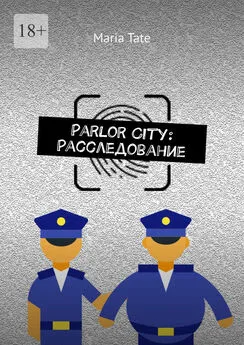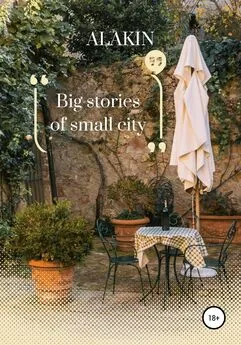Lauren Beukes - Zoo City
- Название:Zoo City
- Автор:
- Жанр:
- Издательство:неизвестно
- Год:неизвестен
- ISBN:нет данных
- Рейтинг:
- Избранное:Добавить в избранное
-
Отзывы:
-
Ваша оценка:
Lauren Beukes - Zoo City краткое содержание
Zinzi has a talent for finding lost things.
To save herself, she’s got to find the hardest thing of all: the truth.
Zoo City - читать онлайн бесплатно полную версию (весь текст целиком)
Интервал:
Закладка:
"I'll be able to tell when I see it. May I?" I up-end the box onto the counter and sift through the photos. Most of them are cold dead things.
I latch onto one and turn it over. It's a photograph of a white wedding. A man and a woman – Song and S'bu's parents – squint into the sunlight at the bottom of a set of steps that could lead up to a community hall or a very plain church. His white suit has big lapels, she is holding a bouquet of pink roses and cosmos awkwardly. There is a faint wisp of attachment. Faded, fragile, hard to see in the light, but there. I've never worked with photographs before, unless the photograph was the lost thing in question. It never occurred to me to try to reach through the image. I get a flash of the World Trade Center again, which is frustratingly absurd.
"It's not fair," Mrs Luthuli sighs. "They lost them so young."
"May I borrow this?"
"I don't know if I have the negatives…" She looks uncertain. But I am already out the door, following the tenuous wisp like Theseus and his ball of string. Let's just hope there's not a Minotaur on the other side.
It turns out that a Minotaur would be a dramatic improvement on what I actually find, which is nothing. Benoît's phone rings as I drive in aimless circles, trying to catch the ghosts of threads that keep fading, like bad radio signals. It's hopeless. Songweza could be anywhere in the city: sipping a mochaccino in a Parkhurst café or tied to a chair in a dingy garage in Krugersdorp. If I could get close enough, I might be able to pick up the thread, but where the hell do I start? I glance at Benoît's phone, which is pumping out the first twenty seconds of Gang of Instrumentals' "Oh Yeah" on repeat. The display indicates that the incoming call is from a private number. I let the call go to voicemail, but it rings again, insistently, distracting me so that I miss the dead-end sign and head down a culde-sac. The third time, it's easier to answer – even if it's his bloody wife calling from Burundi – than to have to listen to "Oh Yeah" one more time.
"Hola," I say, squashing the phone to my ear with a hunched shoulder, as I yank the car through a three-point turn. Oh, for power steering.
"I don't have an exact address for you," Benoît says, "but I can tell you he lives in Hillbrow."
"You have no idea how much that means to me right now," I say, steering the Capri back towards the highway.
"Even if I got it from D'Nice?" he says.
"I don't care where you got it, my love."
"Okay, good. He says you owe him R200 for the information."
That sours my mood, but only slightly, because as I get closer to the city, I feel like I'm tuning in to the right channel at last. The wisp of thread solidifies, still delicate, but now actually leading somewhere rather than tapering off into nothingness.
When I see it, it's like a smack in the face. Not the World Trade Center. High Point. And the thread from the wedding photograph leads right to it. So close to home I could have tripped over it – if I'd bothered to look up, if I'd bothered to take the poison dream seriously.
I find parking two blocks away. The car guard does a double-take at the state of the Capri. " Hayibo , sisi ."
"Just make sure it's still there when I come back," I say and walk down towards the twin towers of the apartment block.
If Hillbrow was once the glamorous crown of Johannesburg, High Point was the diamond smack in the centre of the tiara, with swinging bachelor pads and luxury apartments for young ambitious professionals and urbane cosmopolitan families.
The entrance is situated inside a pristine open-air mall, an island of consumerist sanctity with clothing stores and a fast-food eatery, pavements you could eat off and patrons not so desperate that they'd try. It's almost normal – practically suburban. I soon see why. The perimeters are tenaciously patrolled by boys built like bulldogs, with shaved heads and mace and bulletproof vests.
It's the broken windows model of law enforcement, the notion that smothering the sparks of civil entropy will help stomp out the embers that flare up into serious crime. No loitering, no littering, no soliciting – although it seems the sharply dressed dealers standing chatting on the corner have diplomatic immunity, as long as they stay out of reach, like the homeless sleeping in rotten sleeping bags across the road.
I head inside, up an escalator, and scout out the entrance to the apartment block. Four heavily trafficked security doors that open with a tag only. There is a caged security office beside the doors, and I try my luck.
"Hi, I'm a visitor. Flat 612," I say, making up a number.
"Name, please?" The bored security guard is a different breed from the youngsters outside.
"Zinzi December."
" Cha, sisi . There is no Zinzi December on this list."
"No, I'm sorry. I'm Zinzi December." I take a shot in the dark. "I'm here to see Ronaldo."
"Ronaldo who?"
"Ronaldo Flat 612."
"You don't have his surname."
"I've forgotten."
"You must phone him, then. Get him to come fetch you."
"I don't have airtime," I plead, pathetically.
The security guard shrugs, goes back to reading his tabloid. The headline reads MORE JOBS DOWN THE TOILET! The Bear murder didn't even make the front page.
"I'll go use the payphone," I say.
I head back down, looking for a back entrance, a fireescape, anything. Instead, I spot one of the young bulldogs. I walk up to him, careful to seem innocuous and un-loitery. "Excuse me, can you help me?"
The kid turns to me attentively. He must be nineteen max, with blue eyes that burn with a puppy dog eagerness, the kind that might just as easily translate into a wagging tail or a nasty nip.
I weigh the odds of pulling the journalism card. Shelve it back in the pack of tricks. "I'm looking for a missing girl."
"Wrong block, m'am. This building is clean. You should try across the road. Ask those guys," he says, indicating the sharps on the corner with a tight little nod of his head. "They know plenty of missing girls, believe you me."
"I'm sure they do. Mine is in this building. I absolutely know it and I need to get in."
"You with the police?"
"No. I'm a sort-of… a private investigator. I find lost things. People too. It's usually less investigating, more finding."
He brightens at the prospect of action. "Let me find out if it's okay." He speaks incomprehensibly into the radio hanging next to his mace-spray. I look away politely, watching the sharps. I hope Song is in this building, and not the grim peeling low-rise across the road with its curtains drawn in the middle of the morning. Most traffickers don't even bother with shipping containers. They advertise instead. It's never prostitution. It's a secretarial or shop job that pays unreasonably well. People are desperate as well as naïve. Once they've got them, the girls are gangraped to put them in their place, hooked on drugs, and then put to work.
"Ja, it's cool," says the boy, coming back to me. "But I'm coming with you and no making a scene to upset the tenants. This is a good block," he adds sternly.
"No problem." He escorts me back up the escalator and tags me through the security gates. The guard inside his cage doesn't even look up from his newspaper.
"Do you know someone called Ronaldo? Really big guy. A bouncer."
"Nope. Sorry. But we have maybe twelve hundred tenants living here. Sometimes more if they sneak guests in to stay, which is an eviction offence. Sorry, hey, but the lift is out, so we're going to have to walk up. It's the tenants. We have water supply issues. People turn on their taps, nothing comes out and they forget about them, so when the water comes back on, it floods. It's got into the elevator shaft. It's going to cost a million to fix."
"What do the people who live on the 26th floor do?"
"Walk. Even with groceries or prams. But it's okay, we've told them that until the lift is fixed, they can throw their rubbish out the window, and we get someone to clean it up. It's not nice, but you have to be fair to the tenants. So what floor is your girl on?"
"I don't know yet."
"Well, I hope you're fit," he says pushing the door open on a bleak cement stairwell. "I go up these stairs maybe eight or ten times a day. Disturbances with some guys drinking. Or a door gets stuck. We're like security and maintenance. We had something similar happen before, you know."
"Similar?"
"To your girl. There was a woman who was raped. We knew it was a tenant. So we just waited outside. Me and her, standing by the doors for two days until the guy came out. Then we had him arrested." He stands aside to let an old man carrying two bulging and battered Checkers packets pass. There are no numbers to mark the floors, but by my reckoning we've gone up seventeen or eighteen floors when Sloth grips onto my shoulders hard.
"I know, buddy." I can feel the thread tugging like an excited toddler.
Which is when the door above us bursts open and releases a flurry of girl into the stairwell. She collides with Security Boy, trying to barge past, but he catches her against his chest and holds her.
"Whoa, whoa, whoa," he says, restraining her. "You okay?"
"Let go of me, you cock!"
I was wrong. Songweza is not a Gothpunk princess, she's nu-'80s indie mod rocker. More colourful wardrobe, same amount of eyeliner. And she's a handful. Or an armful.
"Song Radebe?" The question is moot: she looks exactly like the photographs in the magazines. Slightly scruffier, maybe, with a mane of braids held back with a bright purple alice band and matching purple snakeskin cowboy boots. She sees me, or rather Sloth, and her eyes widen.
"Oh crap ." She wriggles out of Security Boy's grasp and darts back up, taking the steps three at a time.
We emerge from the stairwell into a sun-drenched corridor and a stand-off: Songweza is trapped between us and Marabou and Maltese. The door to room 1904 stands ajar behind them.
"Okay, people," Security Boy says, his hand hovering near his mace, ready to draw, "let's sort this out."
"Well, look who's here," sneers the Maltese.
"You're late to the party," the Marabou says. "And you haven't been answering your phone."
"What are you doing here?"
"Oh sweetie, don't you check your voicemail? Your services are no longer needed. We found her all on our ownsomes."
"My phone was stolen."
"Very unprofessional," Maltese tuts.
Song looks from me to them and back again. Then she drops into a crouch, puts her hands over her ears, and screams loud enough to be heard in Cape Town. I don't know about her singing, but all that voice training has paid dividends. The screaming, one note perfectly sustained, sets off the Mutt, which starts yapping in a hysterical frenzy.
Security Boy clicks open the holster that holds his mace canister. "Okay, I mean it. What the hell is going on here?"
"Don't let them take me," Song says, sobbing. She throws herself at him, clutching onto his pants legs.
The door of 1910 down the way opens a crack and Security Boy shouts down the corridor, "Close that door. Mind your business!"
"As you should," the Marabou says.
"They're trying to kidnap me!" Song yelps, on her knees, hanging onto Security Boy's belt, looking up at him with huge kohl-lined eyes.
"She's been off her medication for a week," says the Maltese, slowly unbuttoning his blazer in a deliberate Idon't-have-a-weapon-in-here kind of way. "She's totally delusional."
"Wait. Wait a minute." Security Boy is flustered.
"I have a letter from her doctor." The Maltese reaches into the inside pocket of his jacket and removes a piece of paper. He carefully unfolds it, revealing the Haven's letterhead.
Читать дальшеИнтервал:
Закладка:


![О Генри - Закупщик из Кактус-Сити [The Buyer from Cactus City]](/books/1074399/o-genri-zakupchik-iz-kaktus.webp)






